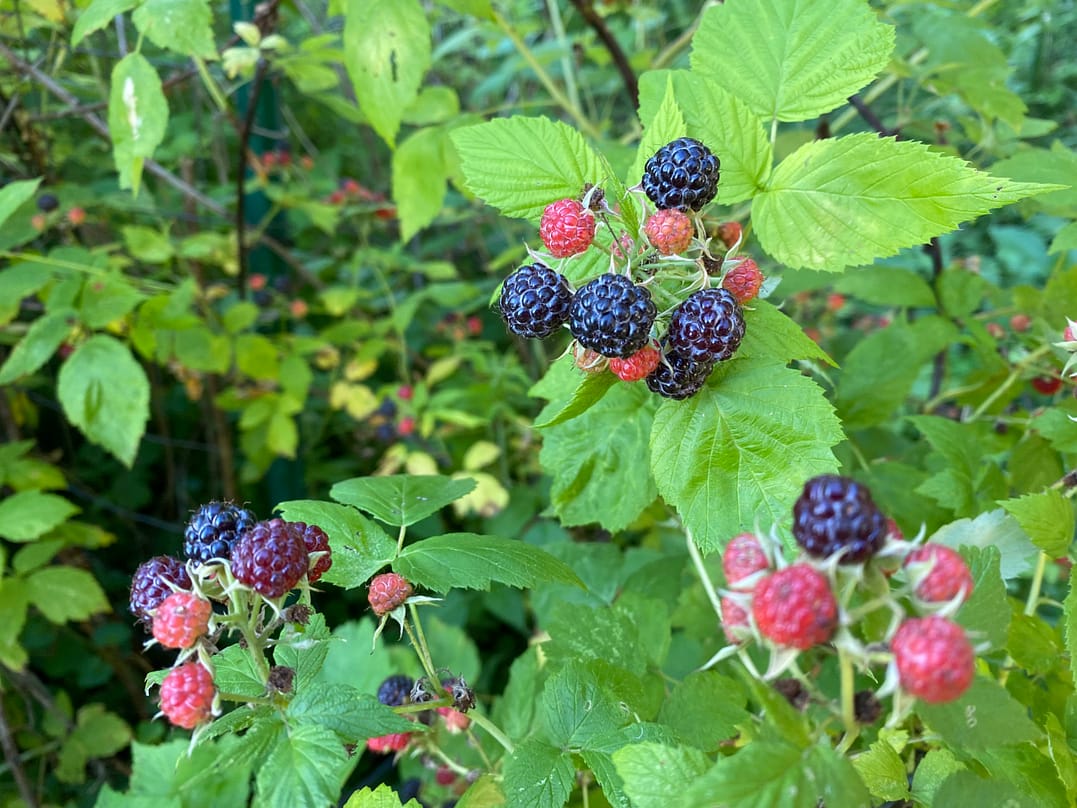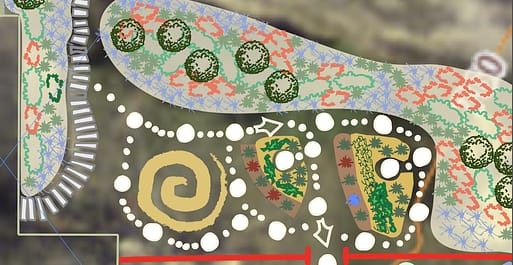
Ready to Take Action for a More Livable World?
About the 2022-2023 Permaculture Design Course
Permaculture Design is a way to integrate your life with the natural world.
It just makes so much sense to take a permaculture design course that can help you integrate your needs with the needs of the life around you. Permaculture design can help you make smart decisions about your garden, your farm, and your daily life. By working smarter (and sometimes a little harder) now you can increase support for the life around you while getting yields and building community.
It's a complex, beautiful world with difficult challenges to navigate.
We live in a world with complex, interconnected systems: ecosystems, homes and neighborhoods within communities, and cultural systems of education, belief, and practice which will leave a legacy to future generations. The world we share has a lot of positives to it, but also several challenges: climate change, pollution, poor soils, food systems, deforestation, energy distribution systems, problems in the built environment, social and economic challenges of all kinds.
Use your garden or farm as a steppingstone to a better future.
For decades, the permaculture design course has helped people to find the principles and practices which can guide key choices about how to live a better quality of life--a more resilient life. Those same choices can help to heal ecosystems and support future generations. We know we can do better, and it is more fun when we do it together.
What Motivates Us: Design Solutions
If you aren’t sure about the permaculture design course, we understand. We wrote this blog to help. And, maybe it’s helpful to share some of why we are passionate about facilitating the permaculture design course. After working with hundreds of students of all ages, we’ve seen this course help people make the choices needed to have a rewarding, connected life. We love opening those doors.
This course does cover the 72-hour content including ecological, built, and social systems. We also include additional blocks on key skills we find critical in implementing permaculture into your life. Rather than an immersive two-week course, we prefer to work in weekend formats that allow participants to absorb and apply information in their lives as we go. This makes for a more transformative experience. Likewise, we encourage graduates to apply mentorship or apprenticeship after the course. Mentorship is an on-going relationship which develops mastery in key areas. Apprenticeship is a more formal program of training in an area that will could lead to a diploma which complements your career path.
Topics for the Course
- Soil building for ecological success and nutrition
- Water management, supply, and care
- Forest patterns, tree care, and plant communities
- Designing for food production throughout the year
- How to integrate animals into your system (and work with the ones already there)
- Permaculture in different climates — and adaptation to climate changes
- Natural patterns and emergent cultural patterns
- Skills which connect us with nature deeply
- Building structures and retrofits
- Small building projects that make a difference in the system
- Energy conservation and production systems
- Regional and urban permaculture
- Farm and rural permaculture
- Home and community economics that transform lives
- Decision-making and governance –with a special focus on sociocracy
- Village life and how your neighborhood is a village in the making
- Making a life with permaculture
- Support and networks after the PDC
- Connecting with a community of practice

Details for the Course
Format
In-person class: small group work, discussion, and reflection, locations: Bloomington, Indianapolis, online as needed.
On-line class: between weekends we will have short evening classes to connect and integrate the material we're learning.
Homework materials include: video, reading, and practice, This is a fun, dynamic, and participatory course.
Dates
2022: October 22-23; November 12-13; December 3-4
2023: January 7-8; February 4-5; March 4-5; April 1-2
Cost
$850-$1,350 sliding scale.
Payment plans available.
Deposit policy – $250 secures your place in the course.
This course is recognized by the Permaculture Institute of North America, with whom graduates may pursue a diploma.
Begin your PDC course registration
This let's us know you want to join the course, so we can answer any questions and get your registration started.
